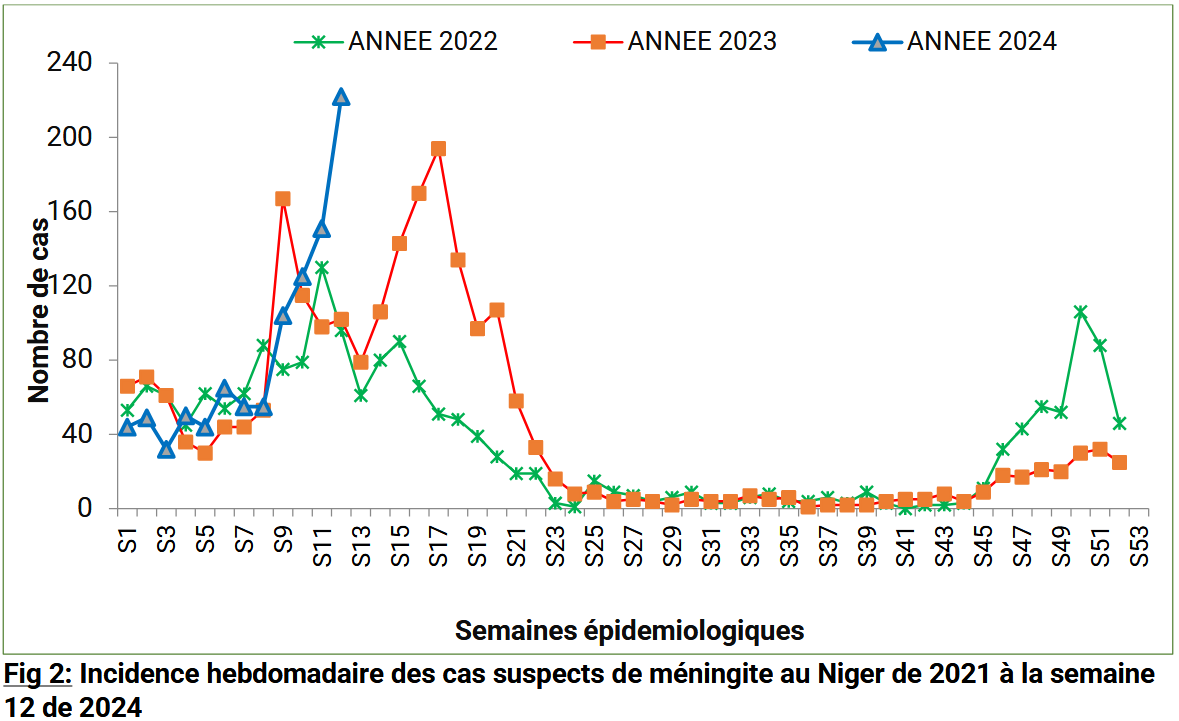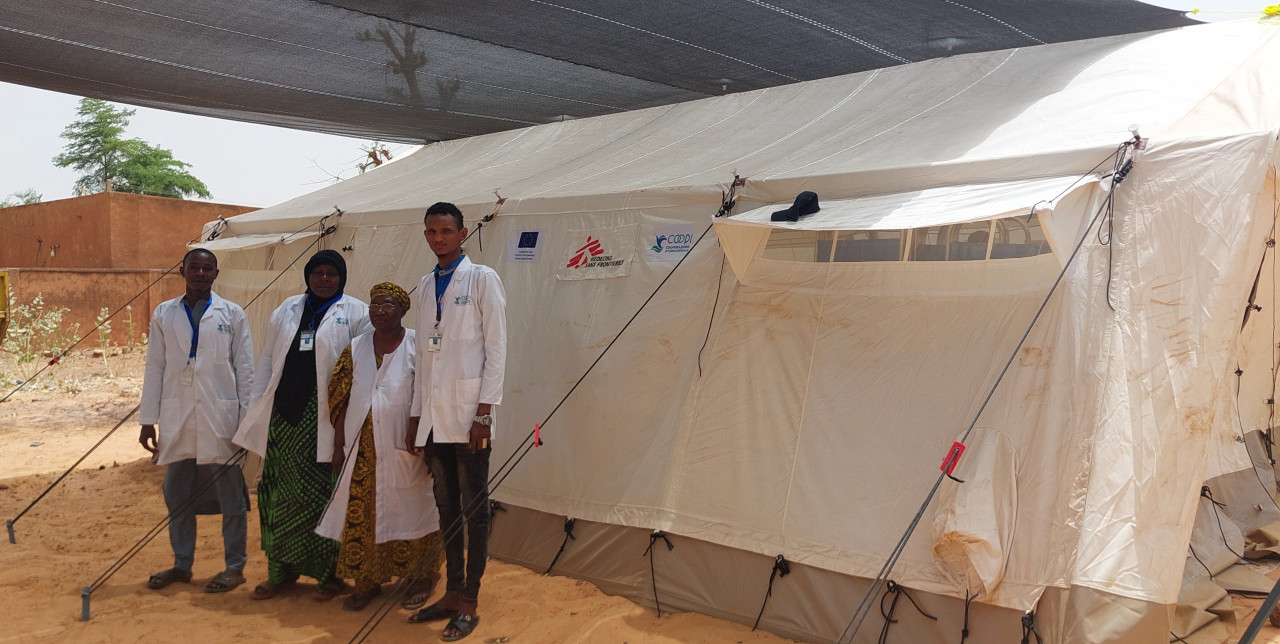17-04-2024 | di COOPI
Meningitis outbreak in Niamey: COOPI activates Crisis Modifier to respond to the emergency
The current meningitis outbreak in the capital city of Niamey is of particular concern and presents alarming data. At this time, partly due to the high population density, the numbers of infection are rising rapidly with a high risk for the most vulnerable segments of the population. Our operators in the project "Emergency Response to the Health Care, Nutrition and Psychosocial Support Needs of Vulnerable, Displaced and Host Populations Affected by the Crisis in the Tillabéri and Tahoua Regions of Niger" funded by European Humanitarian Aid (European Union Directorate-General for Humanitarian Aid Operations) know this very well.
Niger is located in the so-called "meningitis belt", running from Senegal to Ethiopia. It is evident how the epidemic has been increasingly affecting the country during the past few months: as of March 30, 46% of the tests that have been carried out, out of a total of 1,208 suspected cases, were positive, with a lethality rate at 6.6%: 74 cases were deaths. The reason for the sharp increase in cases is to be found in the fact that meningitis had a higher incidence this year in Niamey, in Health Districts 1 and 3, where the epidemic was declared on March 28 after having exceeded the epidemic threshold.

Source:SITREP N°04 2024 DE LA REPONSE AUX FLAMBEES EPIDEMIQUES DE LA MENINGITE AU NIGER, OMS – Ministére de la Santè publique, de la population et des affaires sociales
To counter the meningitis wave, COOPI activated the Crisis Modifier (CM) through the European Union project, intervening in Health District 1, where it urgently equipped tents installed by Médecins Sans Frontières Espagne in the area of the Centre de Santé Intégre Recasement. The strategy adopted to respond to the emergency sees the implementation of two mobile clinics for rapid screening of symptoms directly in the neighborhoods that are most affected by the epidemic. Suspected cases are reported to health authorities, who take them in for testing with material support offered by COOPI to health districts. For the care of the affected population, COOPI, in coordination with the Direction de la Surveillance et de Riposte aux Epidémies (DSRE) and the Direction Régionale de la Santé Publique (DRSP), has set up a 24-bed health center that will complement the activities of the local Recasement Health Center while also providing human resource support through the work of 8 nurses and a midwife. The strategy will be complemented through community outreach and monitoring activities through the involvement of 55 volunteer agents, RECOs (relais communautaires), educated and trained on how to recognize suspected cases of meningitis who will direct people in their target areas to health facilities for treatment and vaccination.
COOPI has been present in Niger since 2012 to address various emergencies in the country, dealing with health, mental health, education, protection, and disaster risk reduction.




 Niger
Niger
